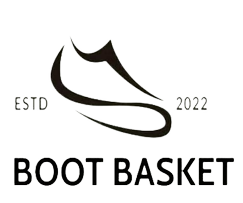Omegle vs Chatroulette: Comparing the Platforms for LGBTQ+ Users
Introduction:
In recent years, online chat platforms have gained popularity as a means of socializing and meeting new people. Two of the most well-known platforms, Omegle and Chatroulette, have brought strangers from around the world together through video and text chats. However, for LGBTQ+ users, choosing the right platform that is inclusive and safe can be essential. In this article, we will compare Omegle and Chatroulette, focusing on their features, user experience, and safety measures for LGBTQ+ users.
1. Features:
Both Omegle and Chatroulette offer similar features, connecting users randomly for video and text chats. They allow users to select their preferences such as language, location, and interests. However, Omegle stands out with an additional feature called “Spy Mode,” where users can discuss various topics while others observe and participate anonymously. While this feature may not specifically cater to LGBTQ+ users, it provides a unique chatting experience.
2. User Experience:
The user experience on both platforms can vary significantly. Omegle often requires users to sign in with a Google or Facebook account, providing some level of accountability and reducing the chances of encountering trolls or harmful individuals. Chatroulette, on the other hand, does not require any login, making it easier for users to remain anonymous. This anonymity, however, can attract individuals who engage in inappropriate or offensive behavior. LGBTQ+ users might find the lack of accountability on Chatroulette unsettling.
3. Safety Measures for LGBTQ+ Users:
When it comes to safety measures for LGBTQ+ users, both Omegle and Chatroulette have similar limitations. Since these platforms connect users randomly, there is always a risk of encountering homophobic, transphobic, or otherwise discriminatory individuals. While both platforms have guidelines against such behavior, enforcing them in real-time can be challenging. Additionally, due to the anonymous nature of Chatroulette, it may be even more difficult to report and block offensive users.
Conclusion:
In the comparison between Omegle and Chatroulette, it’s important for LGBTQ+ users to prioritize safe and inclusive platforms. Omegle’s requirement for account login allows for more accountability and reduces the likelihood of encountering offensive users. However, both platforms come with inherent risks due to their anonymous nature. It is essential for LGBTQ+ users to take precautions, such as avoiding sharing personal information and reporting/blocking offensive users. Ultimately, the choice between Omegle and Chatroulette depends on individual preferences for features and the level of safety desired.
The Evolution of Omegle and Chatroulette: A Brief History
In the world of online communication, Omegle and Chatroulette have made quite the impact. With their unique and anonymous chatting features, these platforms have revolutionized the way people connect and interact with each other. In this article, we will take a journey through the evolution of Omegle and Chatroulette, exploring their origins, growth, and the challenges they have faced.
The Birth of Omegle
Omegle was created in 2009 by an 18-year-old developer, Leif K-Brooks. The idea behind Omegle was to provide a platform where people could meet and chat with strangers from around the world, completely anonymously. This unique concept gained instant popularity, attracting millions of users in a short span of time.
One of the key features that set Omegle apart was its random pairing of users. Unlike traditional chat rooms or messaging platforms, Omegle matched strangers without any specific criteria or preferences. This element of surprise and anticipation added an exciting element to the user experience.
The Rise of Chatroulette
Inspired by the success of Omegle, another anonymous chat platform called Chatroulette was launched in 2010 by a 17-year-old Russian developer, Andrey Ternovskiy. Chatroulette took the concept of random pairing to the next level by incorporating live video streaming.
Similar to Omegle, Chatroulette gained immense popularity within a short period. People were drawn to the thrill and excitement of encountering complete strangers through live video chats. The unpredictable nature of these interactions made Chatroulette a viral sensation, with celebrities and influencers also jumping on the bandwagon.
The Challenges and Controversies
As both Omegle and Chatroulette reached the peak of their popularity, they also faced several challenges and controversies. The unmoderated nature of these platforms meant that users were exposed to explicit content and inappropriate behavior. This led to concerns about the safety of users, particularly younger individuals.
In response to these issues, both platforms implemented stricter guidelines and moderation measures. However, the damage had already been done, and the reputation of Omegle and Chatroulette took a hit.
The Evolution and Future
In recent years, both Omegle and Chatroulette have undergone significant changes to adapt to the evolving online landscape. Omegle introduced optional registration and moderation controls to create a safer environment for users. Chatroulette implemented a subscription-based model to filter out explicit content and improve user experience.
Today, these platforms continue to attract users seeking unique and spontaneous interactions. Despite the challenges they have faced, Omegle and Chatroulette have left a lasting impact on the way we socialize online. They serve as a testament to the power of anonymity and the thrill of connecting with strangers from all corners of the globe.
The Takeaway
The evolution of Omegle and Chatroulette showcases the ever-changing nature of online communication. These platforms have revolutionized the way people form connections and interact with each other. While they have faced their fair share of challenges and controversies, Omegle and Chatroulette remain iconic pioneers in the world of anonymous chatting.
- Omegle was created in 2009 by Leif K-Brooks.
- Chatroulette was launched in 2010 by Andrey Ternovskiy.
- Both platforms faced controversies due to explicit content.
- Omegle introduced registration and moderation controls.
- Chatroulette implemented a subscription-based model.
LGBTQ+ Inclusivity on Omegle: Understanding the Features and User Experience
In recent years, the LGBTQ+ community has made great strides towards equality and acceptance. With the internet providing a platform for people to connect and express themselves, it is crucial for social platforms to be inclusive of all individuals, regardless of their sexual orientation or gender identity. Omegle, the popular online chat platform, is one such platform that has been at the forefront of fostering inclusivity among its users.
Omegle, known for its anonymous and random chat feature, has become a hub for LGBTQ+ individuals to find support, make connections, and express themselves freely. This article explores the various features and user experiences on Omegle that contribute to its LGBTQ+ inclusivity.
Anonymity as a Tool for Expression
One of the key factors that make Omegle an inclusive platform for LGBTQ+ users is its anonymous nature. By not requiring users to reveal their personal information, individuals can freely explore and express their sexual orientation or gender identity without fear of judgment or discrimination. This anonymity empowers LGBTQ+ individuals to share their experiences, seek advice, and connect with others who share similar stories.
Interest Tags: Finding Like-Minded Individuals
Omegle’s interest tags feature allows users to connect with others who have similar interests, including LGBTQ+ topics. This feature enables LGBTQ+ individuals to easily find like-minded people, form support systems, and engage in conversations that are important to them. By having this dedicated space, users can have meaningful discussions about LGBTQ+ rights, experiences, and activism.
Community Moderation and Reporting System
Ensuring a safe and inclusive environment for LGBTQ+ users is of utmost importance on Omegle. The platform has implemented a community moderation system, along with a reporting system, to address any instances of harassment, hate speech, or discrimination. This proactive approach creates a sense of security for LGBTQ+ individuals, allowing them to engage with others without the fear of encountering hostile or offensive behavior.
Empowering LGBTQ+ Voices through User-Created Content
Omegle provides a platform for LGBTQ+ individuals to share their stories, experiences, and perspectives through user-created content. This can range from personal blog posts to videos and artwork. By allowing users to create and share content within the platform, Omegle amplifies LGBTQ+ voices, creating a sense of belonging and fostering a supportive community.
Conclusion
Inclusivity is not just a buzzword; it is a necessity in today’s digital landscape. Omegle’s commitment to LGBTQ+ inclusivity is evident through its features, user experiences, and dedication to creating a safe space for all. By providing an anonymous yet empowering environment, connecting like-minded individuals, moderating the community, and empowering user-created content, Omegle has become a beacon of LGBTQ+ inclusivity in the online world.
Remember, embracing diversity and fostering inclusivity is not only the responsibility of the platform, but it also lies in the hands of its users. Let us celebrate our differences and create a world where everyone feels respected, valued, and loved.
LGBTQ+ Inclusivity on Chatroulette: Exploring the Platform’s Policies and Community Support
Chatroulette, an online video chat platform, has gained significant popularity since its launch in 2009. The platform allows users from around the world to connect randomly and engage in real-time video conversations. While Chatroulette offers a unique and exciting way to meet new people, it is essential to examine its LGBTQ+ inclusivity policies and the support it provides to the LGBTQ+ community.
Chatroulette has made efforts to create an inclusive environment for users of diverse sexual orientations and gender identities. The platform’s policies strictly prohibit any form of discrimination, harassment, or hate speech. These policies aim to foster a safe space where individuals can express themselves freely and without fear of prejudice.
One of the ways Chatroulette ensures LGBTQ+ inclusivity is by implementing a robust reporting system. Users can report any inappropriate behavior or offensive content they encounter during their chat sessions. The platform takes these reports seriously and takes immediate action to address the issues. This proactive approach helps maintain a respectful and welcoming atmosphere for all users.
Furthermore, Chatroulette actively encourages users to embrace diversity and treat others with respect. The platform’s community guidelines emphasize the importance of tolerance and acceptance. Users are encouraged to engage in meaningful conversations and promote inclusivity in their interactions. By fostering a culture of respect, Chatroulette aims to create an environment where everyone feels valued and accepted.
In addition to its policies, Chatroulette features several community support initiatives for the LGBTQ+ community. The platform regularly partners with LGBTQ+ organizations and sponsors events that aim to promote inclusivity and raise awareness about LGBTQ+ rights. These initiatives help create a sense of belonging and support for LGBTQ+ users on the platform.
- Chatroulette offers LGBTQ+-themed chat rooms where users can connect with others who share their identities or interests. These specialized chat rooms provide a space where LGBTQ+ individuals can feel understood and connect with like-minded individuals.
- The platform also hosts virtual events and panel discussions led by LGBTQ+ activists and influencers. These events facilitate open conversations about LGBTQ+ issues, providing education and understanding to users.
- Chatroulette actively engages with its LGBTQ+ community through social media platforms, sharing empowering stories, and amplifying LGBTQ+ voices. This outreach helps create a sense of community and support for LGBTQ+ users beyond the platform itself.
It is worth highlighting that LGBTQ+ inclusivity is an ongoing journey, and Chatroulette acknowledges the need for continuous improvement. The platform actively seeks feedback from its users and welcomes suggestions on how to enhance its inclusivity initiatives. This commitment to growth and development demonstrates Chatroulette’s dedication to providing a safe and supportive environment for all users, regardless of their sexual orientation or gender identity.
In conclusion, Chatroulette is committed to LGBTQ+ inclusivity through its policies, community support initiatives, and commitment to improvement. By fostering an environment of acceptance and respect, the platform aims to be a safe space where LGBTQ+ users can connect, engage, and thrive. As Chatroulette continues to evolve, its dedication to inclusivity will positively impact the experiences of LGBTQ+ individuals on the platform.



